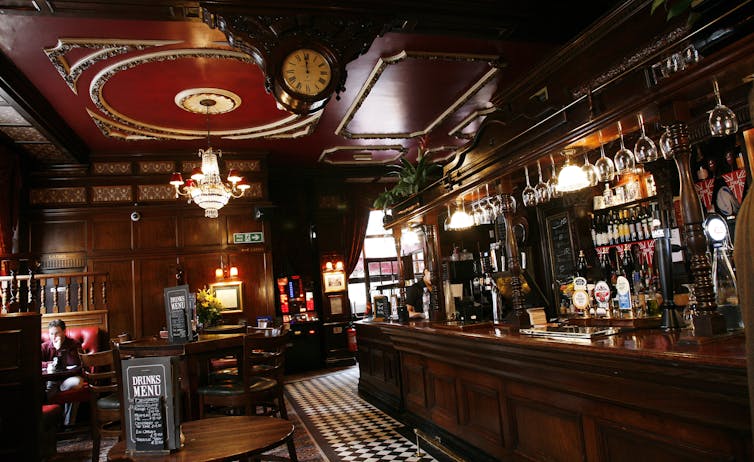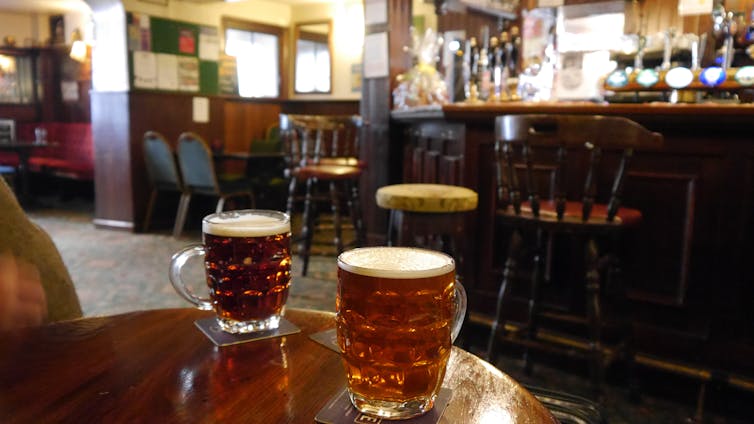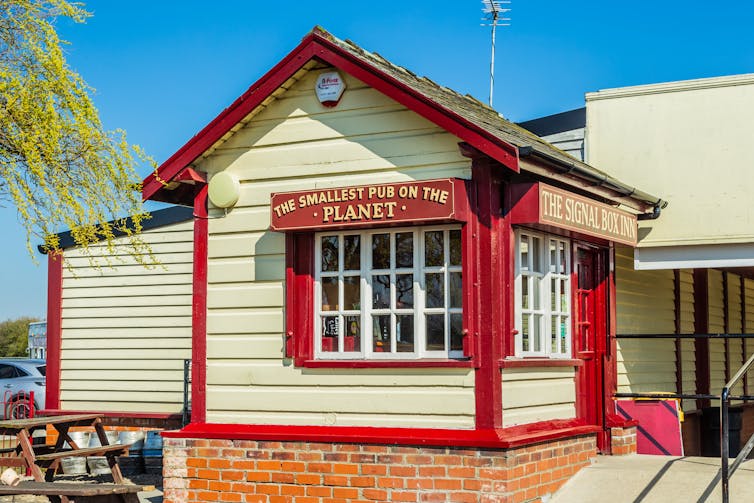Comment: decline of the English pub
Comment: COVID-19 compounded the English pub industry's problems
Published on: 3 July 2020
Writing for The Conversation, Liam Keenan talks about how the British pub industry was already experiencing long-term decline before the impact of coronavirus.

Liam Keenan, Newcastle University
Coronavirus has had an unprecedented impact on pubs in Britain. The British Beer and Pub Association estimates that the industry lost over £100m each month of lockdown.
Hundreds of thousands of staff were placed on the government’s job retention scheme, and 70 million pints of unused beer have been destroyed.
The “super Saturday” reopening in England on July 4 has been hailed as a new dawn for pubs. However, the industry will have to cope with more than social distancing and other challenges related to the coronavirus pandemic. While this crisis has created new problems, the British pub industry was already experiencing long-term decline.
Big business
Tens of thousands of pubs have closed since the 1980s, with more than 5,000 pubs lost in the last five years. While changing economic and cultural conditions have contributed to the industry’s decline, research suggests that there is another contributor – pub companies.
Pub companies, or “pubcos”, lease pub properties to tenants, who are then contractually obliged to pay rent and purchase supplies from the pub company. This is known as the beer-tie, an agreement that forces tenants to buy beer from their pubco and prevents them from accessing the open market.

Pubcos borrow money to buy pubs, prioritise dividend payments to shareholders, and pay close attention to stock market prices. Their emergence reflects the full-scale “financialisation” of the industry. The term financialisation refers to the growing dominance of finance throughout the economy and society.
By 2007, one of the largest pubcos – Punch Taverns – owned over 7,000 pubs with debts of over £4bn. This borrowing enabled pubcos to expand rapidly during the 1990s.
The pubco model has come under intense scrutiny since the 2008 financial crisis. Pubcos have sold pub premises in order to repay debts as consumer spending began to fall under austerity.
Pubco tenants have voiced concern over high rent and unsustainable beer costs. This is because financialisation places less emphasis on what consumers would expect pubs to do – sell food and drink – and more on growing property values in pub estates and boosting share prices. This has put enormous financial pressures on tenants. During lockdown, tenants have complained of being charged full rent by their pubco despite their inability to trade.
Socially distanced pints
When they reopen, pubs will be operating at a reduced capacity as a result of the one-metre-plus social distancing rule. Estimates suggest that pubs will lose about 30% of trading space, which will limit customer numbers and reduce revenues.
Patrons are also likely to be anxious about returning to pubs. This anxiety surrounds getting to grips with online booking systems, cashless payment apps and table service, as well as the virus itself.
In addition, while the UK government has introduced legislation enabling alfresco drinking and dining, this will not help everyone. Beer gardens, terraces, and parking lots are not universal across the industry. This variability contributes to the unique charm of pubs, but it also places uneven constraints on how they can successfully adapt to social distancing.
Finally, and most unpredictable, is the British weather. The success of outdoor trading depends on favourable weather conditions not dampening spirits.
What comes next?
These challenges will erode the profitability of pubs and exacerbate tensions with indebted pubcos. There are several likely outcomes. One is that social distancing will transform the place of pubs in our society. New rules and regulations will change how we access and experience pubs and interact with one another in them.
Smaller pubs may be particularly at threat. Pubcos have prioritised the ownership of medium (10-24 employees) and large (25 or more employees) premises at the expense of smaller ones (fewer than ten employees). Social distancing is likely to amplify this trend, as consumers begin to favour more spacious venues. This will reinforce the growing concentration of larger pubs in urban areas and the relative decline of smaller pubs in outer-city, suburban and commuter belt areas.

The rate of pub closures is almost certain to increase. A combination of unprofitable pubs and persistent debts will inevitably result in pubcos increasing the practice of selling off pub premises.
Financialisation has transformed the industry in recent decades. It looks like coronavirus will now do the same. Social distancing will impact where pubs are, who visits them, and how they are experienced. “Super Saturday” may not be the saviour pubs are hoping for. It will probably be the start of a new period in which the industry begins to look and feel very different.![]()
Liam Keenan, Lecturer in Economic Geography (T&S), Newcastle University
This article is republished from The Conversation under a Creative Commons license. Read the original article.



